
Shalanda Baker
Vice Provost for Sustainability and Climate Action, Office of the Provost and Executive Vice President for Academic Affairs and Professor of Environment and Sustainability, School for Environment and Sustainability
Read Shalanda’s bio
In 2025, U-M created the Sustainability Leadership Council (SLC), the first cross-campus leadership structure of its kind at a public university. Uniting operations, academics, research, and health care, the council drives coordinated action on energy, climate, sustainability, and equity—positioning U-M as a living laboratory for resilient, real-world solutions.

Shalanda Baker
Vice Provost for Sustainability and Climate Action, Office of the Provost and Executive Vice President for Academic Affairs and Professor of Environment and Sustainability, School for Environment and Sustainability
Read Shalanda’s bio
T. Anthony Denton
Senior Vice President Chief Environmental, Social and Governance Officer, U-M Health
Read Tony's bio
Shana Weber
Associate Vice President for Campus Sustainability, Office of the Executive Vice President and Chief Financial Officer
Read Shana’s bio
Charting the path forward
The A History of Action — A Foundation for Change Report offers the first comprehensive look at U-M’s sustainability journey. It brings together the university’s history, current commitments, and future direction in one place.
Download the Report800+
Sustainability courses
700+
Faculty engaged
38,000
Metric tons of GHG emissions avoided
Below, we highlight a sampling of the report’s spotlights from the people, programs, and partnerships shaping U-M’s path toward a more just and sustainable future. Download the report for more sustainability stories & spotlights.
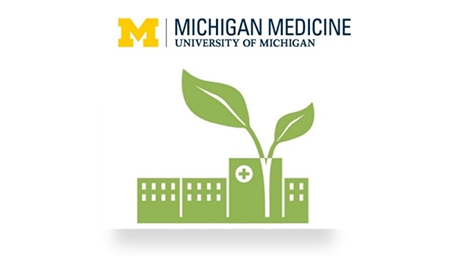
Michigan Medicine launched the Green Anesthesia Initiative at Michigan in 2022, with an aim to cut greenhouse gas emissions by 80 percent. Focused on reducing the use of high-impact anesthetic gases like nitrous oxide and shifting toward less harmful alternatives – including intravenous anesthetics – GAIA achieved an 88 percent reduction in greenhouse gas emissions from inhaled anesthetics.

The Michigan Sustainability Community is a living-learning community where students explore what it means to live sustainably, together. The MSC offers a space for students to connect their values to daily life, build relationships across departments and disciplines, and work together to find solutions to challenges that matter to them.
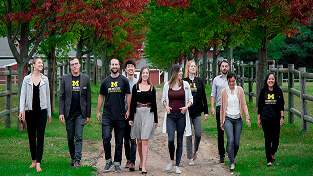
The Erb Environmental Management Institute, established in 1995, provides a formal bridge between business and sustainability teaching and research through a dual-degree MBA/MS program with the Ross School of Business and the School for Environment and Sustainability (SEAS).

The Maize & Blue Cupboard is a vital student-run campus resource working to address food insecurity on U-M’s Ann Arbor Campus. The student-run pantry provides free groceries, kitchen supplies, and household essentials to all members of the U-M community and links users to campus support services like financial aid, wellness resources, and SNAP assistance.
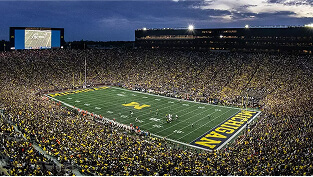
Michigan Athletics’ Zero Waste Game Day initiative keeps football Saturdays sustainable, diverting more than 500 tons of waste from landfills through recycling, composting, and food recovery.
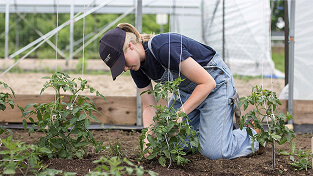
The U-M Campus Farm at Matthaei Botanical Gardens is a student-led living-learning lab for hands-on experience in sustainable food systems, leadership, and research. Supported by the Planet Blue Student Innovation Fund, the 11-acre working farm with 3-acres vegetable producing land, provides fresh, local food for students to U-M Dining and the Maize and Blue Cupboard.

U-M Health is replacing single-use "sharps" containers with reusable collector bins, which are sanitized and then reused. One reusable container can eliminate 500 single-use containers — saving more than 75 tons of plastic from being thrown away. The new containers feature a design that limits employee harm.
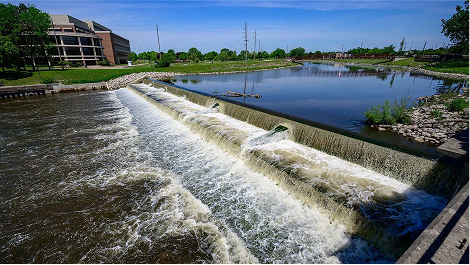
With the Michigan DNR and U.S. Fish and Wildlife Service, UM–Flint is helping restore the Flint River. In fall 2024, a century-old dam was removed and rock riffles installed to improve flow, reduce flood risk, and expand access for people and wildlife. The project is revitalizing the river's ecology and supporting biodiversity in the heart of the city.
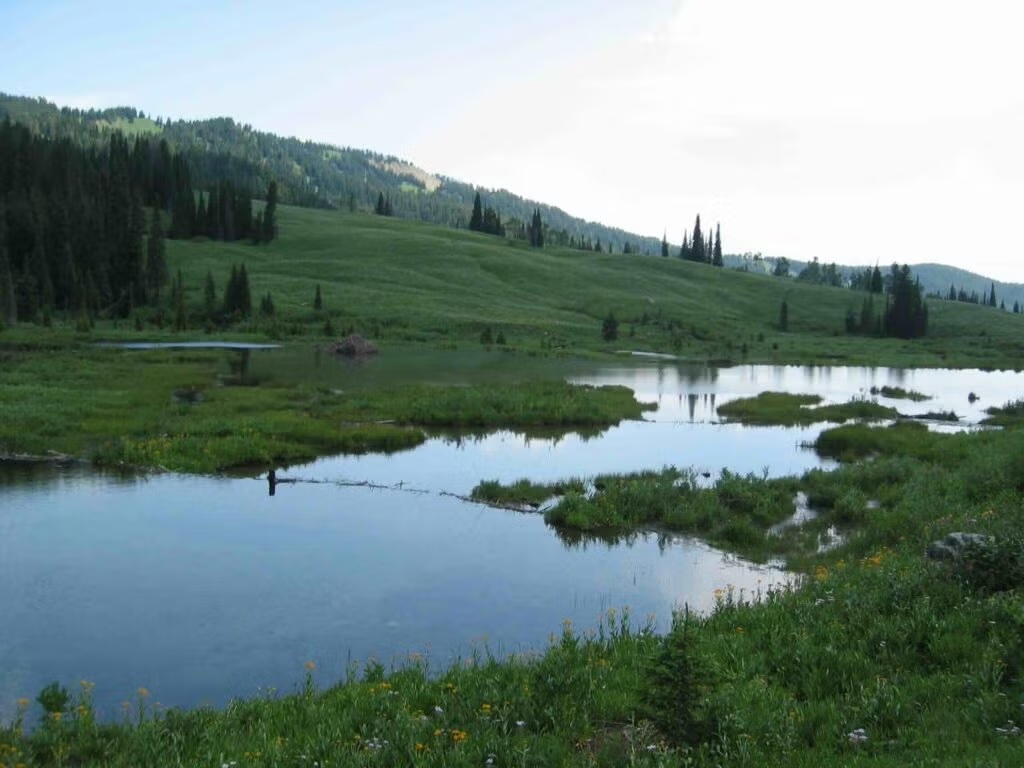
Since 1929, the U-M Camp Davis Rocky Mountain Field Station— located 20 miles outside Jackson Hole, Wyoming—has provided a 120-acre site for experiential learning in geology, ecology, and environmental science, all within one of the most remarkable landscapes on Earth.
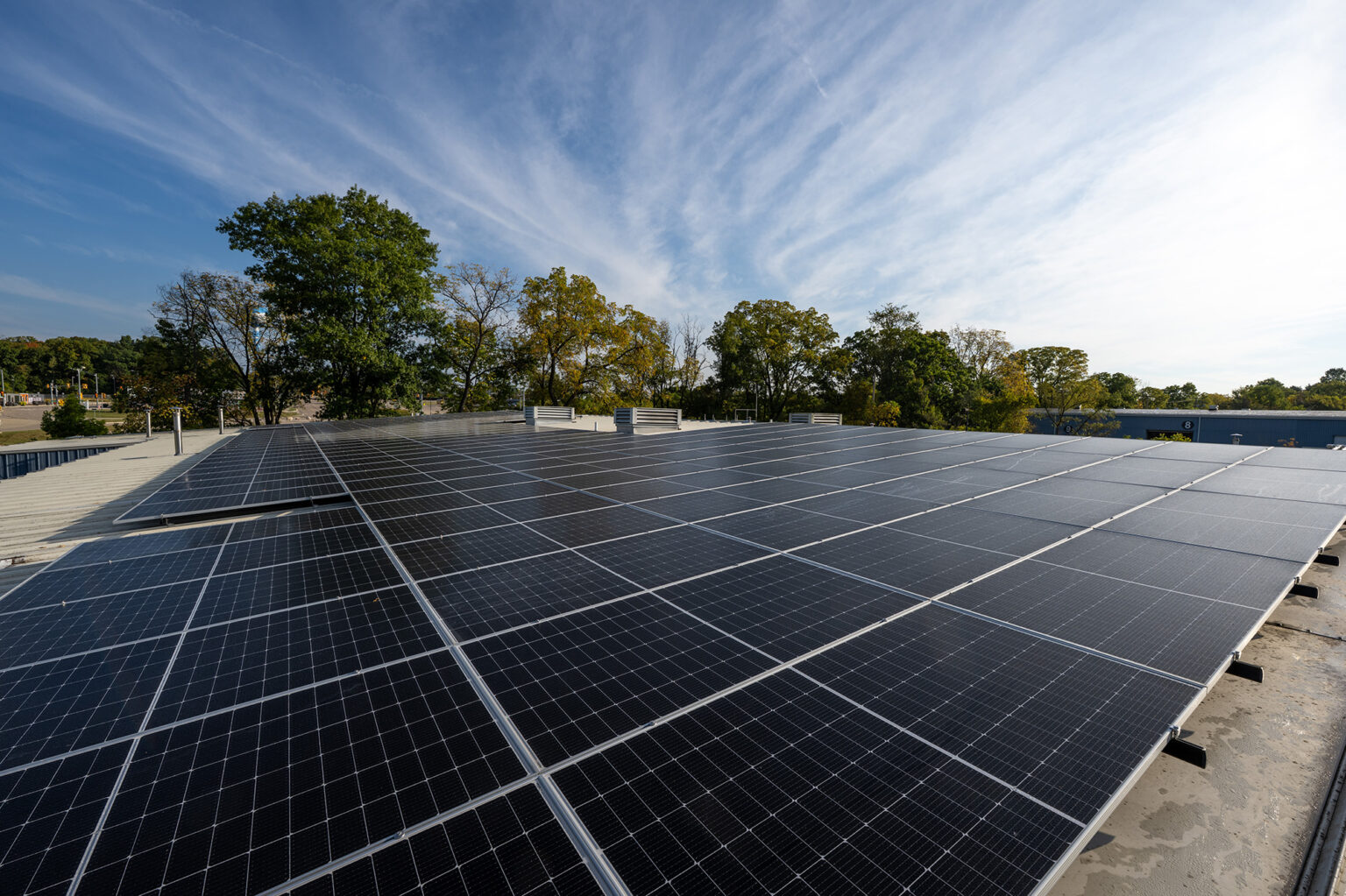
Maize Rays will install 25 MW of on-campus solar capacity across all three campuses, making it the largest renewable energy project in U-M's history. This initiative directly supports the university's broader carbon neutrality goals, including efforts to eliminate Scope 2 greenhouse gas emissions linked to purchased electricity. Maize Rays will also help transform the campus into a living laboratory, providing real-time data for teaching, research, and engagement.
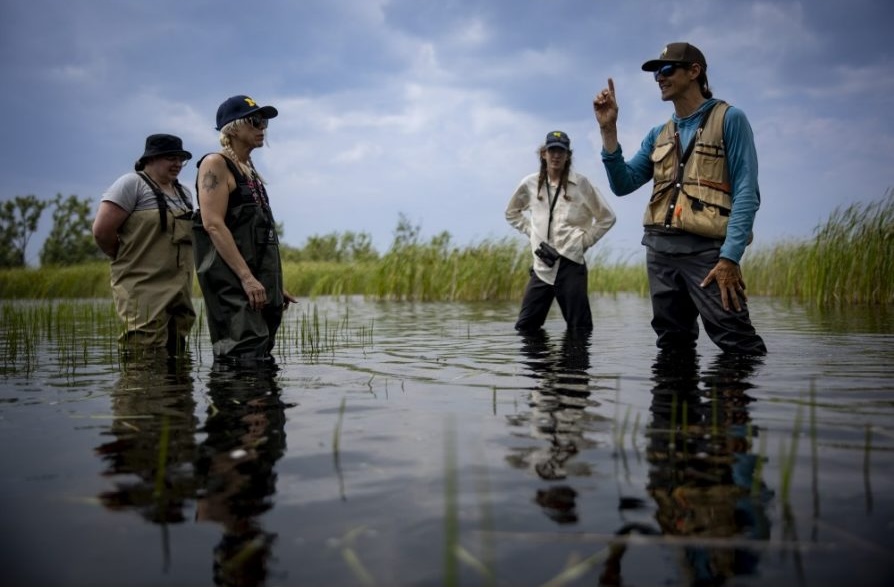
In 1909, the University of Michigan Biological Station (UMBS) opened on 10,000 acres of cleared land in Northern Michigan, enabling students and researchers to study the impacts of early forestry practices. Now, with over 100 years of climate and environmental data, UMBS brings together natural historians, microbiologists, ecologists, climatologists, geologists, and atmospheric scientists to track challenges such as climate change and invasive species over time.
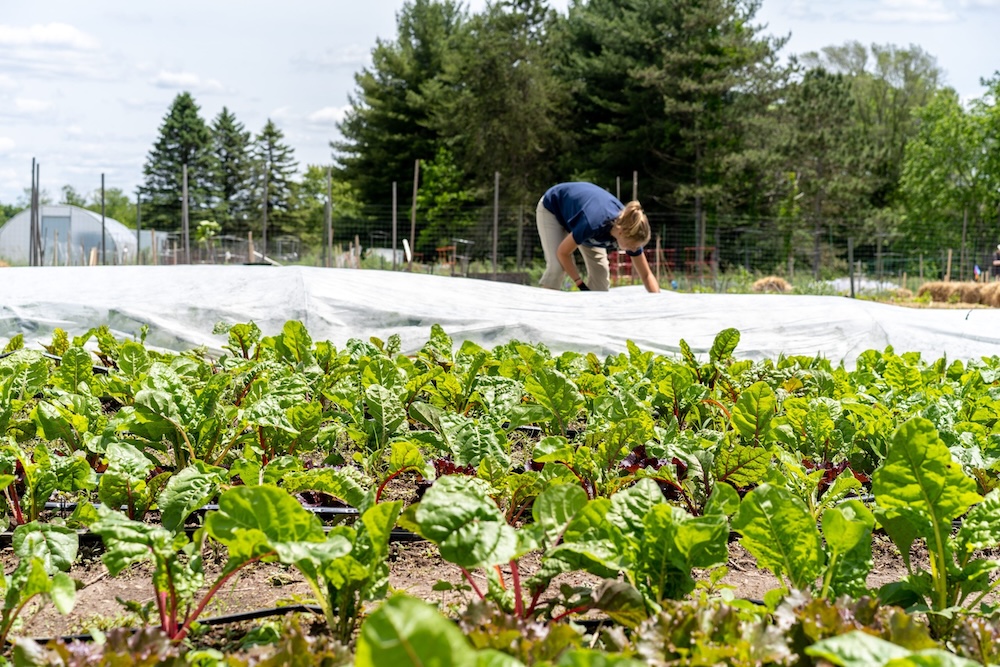
M Dining is more than a cafeteria, it is a living learning lab in action, combining daily food service with hands-on learning, testing, and collaboration. M Dining staff work with students, offering mentorship and access to data, facilities, and real-world sustainability challenges. Together, they have piloted waste-reduction strategies like trayless dining, made-to-order meals, full-scale composting, and surplus food recovery.
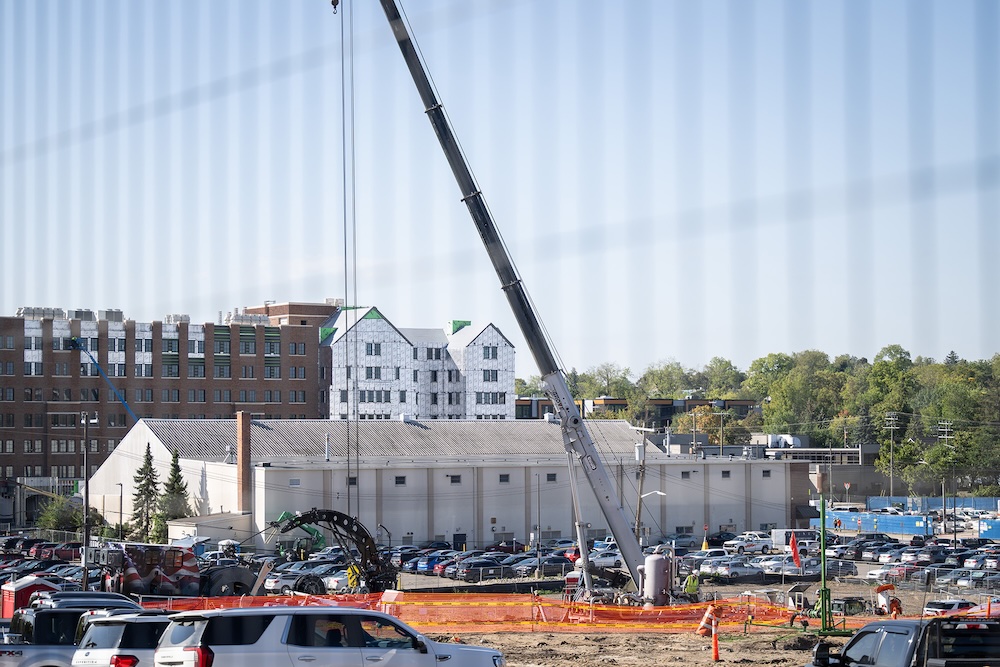
A cornerstone of U-M's transition to carbon neutrality is the adoption of geoexchange technology, an efficient, all-electric system that uses the earth's consistent underground temperature to heat and cool buildings and will support U-M's goal to eliminate Scope 1 emissions by 2040.
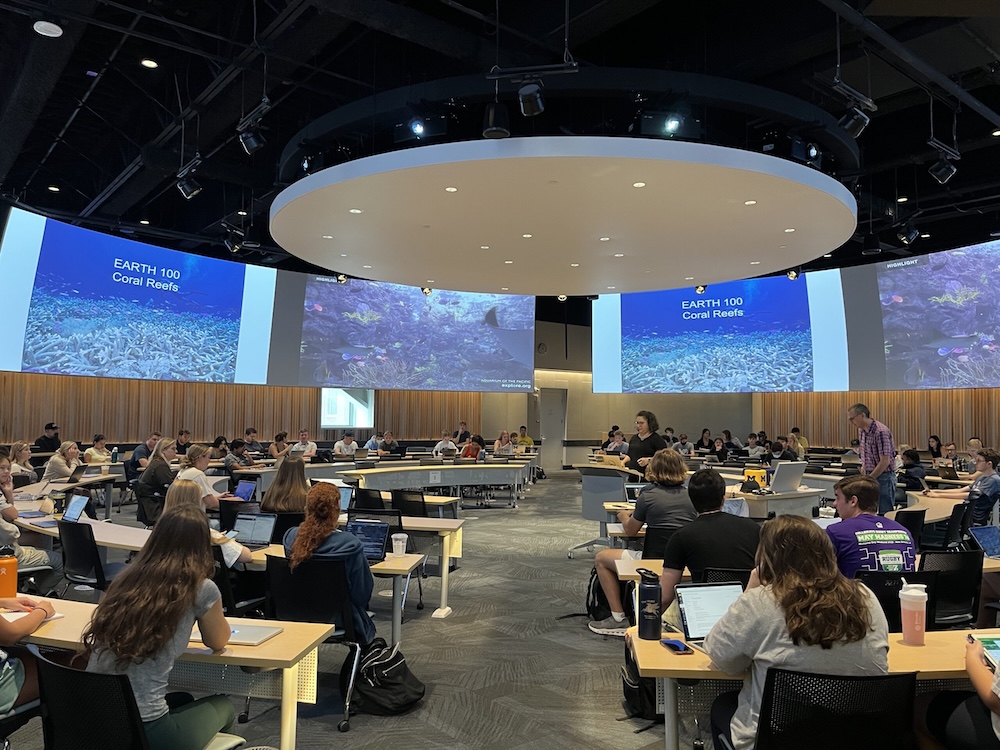
The Make Climate a Class initiative provides a flexible, low barrier way for faculty across disciplines to integrate climate related content into at least one session of an existing course.
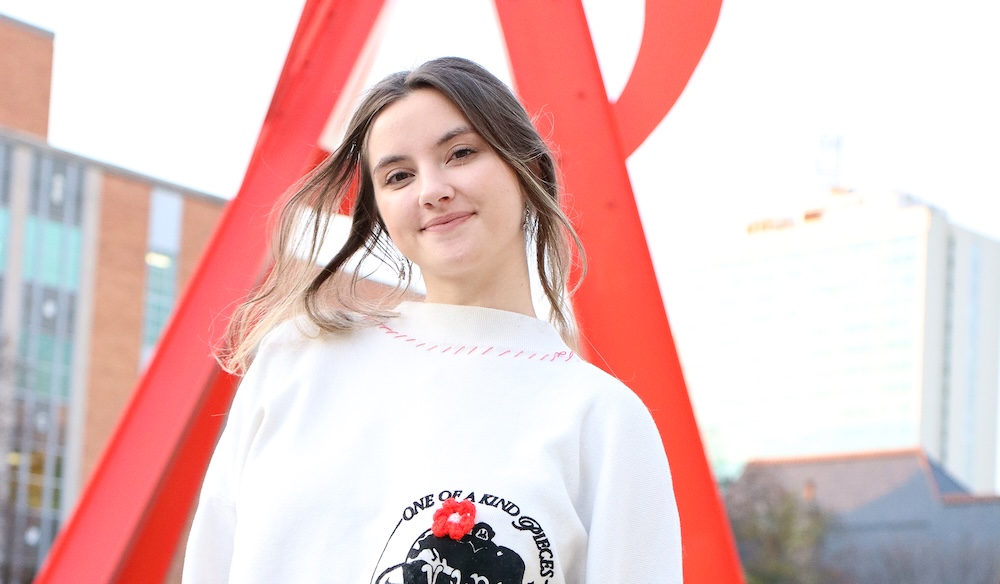
The U-M students leading Crocheting for Conservation are countering the fast fashion industry by creating clothes and accessories from second-hand, reused, and sustainably sourced materials.

Convened by the School for Environment and Sustainability (SEAS), the U-M Sustainable Food Systems Initiative (SFSI) brings together faculty, students, and community partners to address the complexity of global and local food challenges. Since 2017, SFSI has led Food Literacy for All, a community academic partnership course, featuring a weekly lecture series co-designed and co-taught by U M faculty and Detroit-based community leaders.
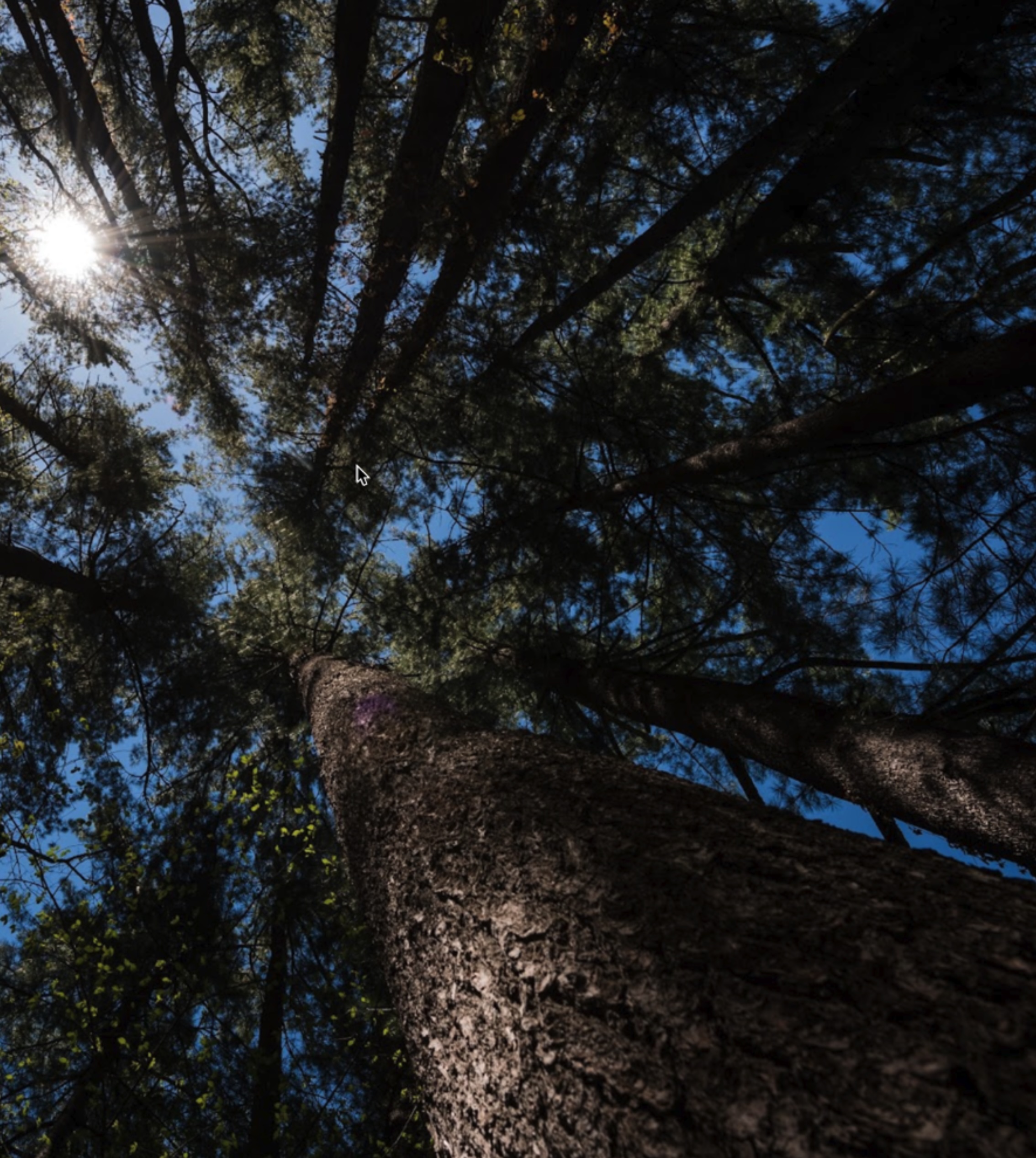
Nature Rx is a university-wide initiative that encourages the U-M community to engage with nature, building on scientific evidence of nature's many benefits, including mental health. Part of the free Michigan App, Nature Rx features over 100 locations around the Ann Arbor Campus and surrounding areas for users to quickly find a bit of nature to explore.
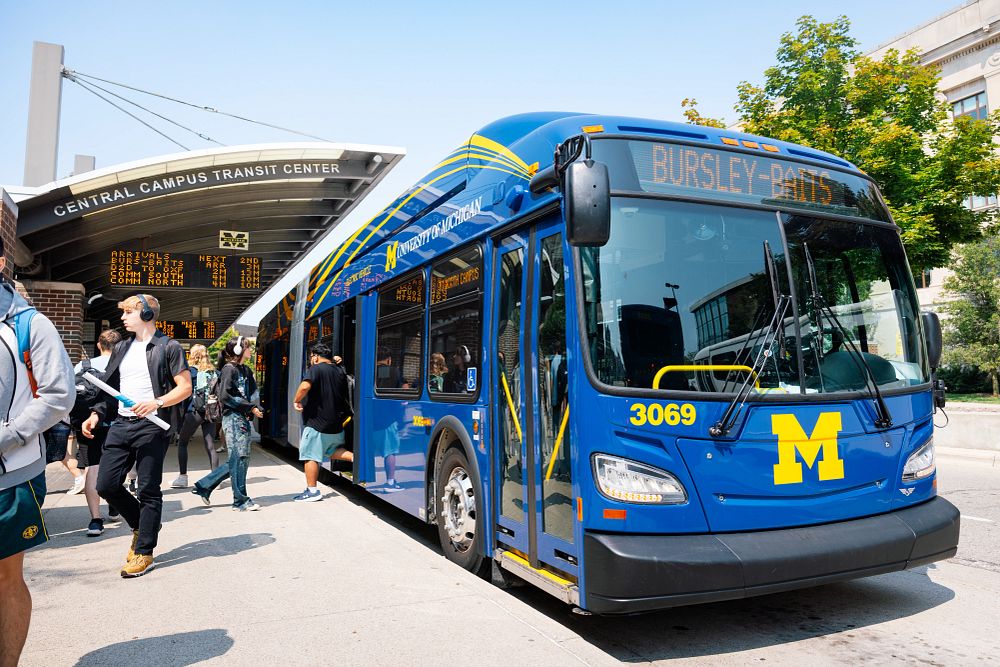
U-M is investing in the future of campus movement. One of the most ambitious ideas being explored is an Automated Transit System (ATS), a high-capacity, all-electric Campus Connector that would provide frequent, efficient, and sustainable travel between U-M's North, Central, and Medical campuses in Ann Arbor.
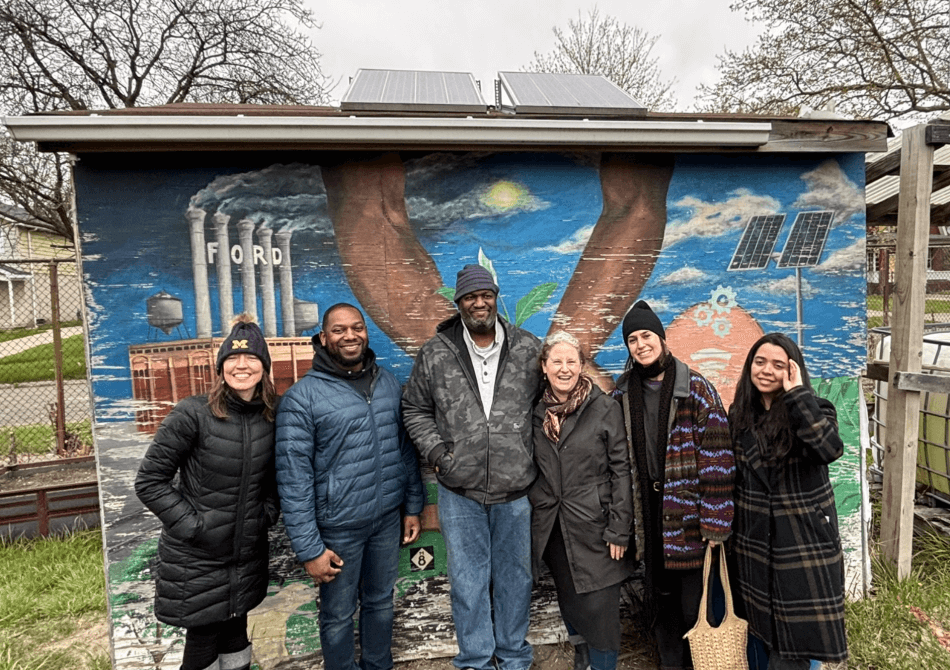
The Detroit Sustainability Clinic connects community organizations with U-M students, faculty, and experts to advance client-identified sustainability goals. Through flexible projects ranging from rapid technical assistance to long-term partnerships, the Clinic supports efforts across Detroit and throughout SE Michigan in areas such as environmental justice, housing, climate action, green infrastructure, and circular economy.